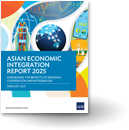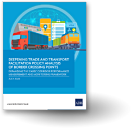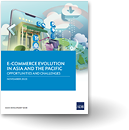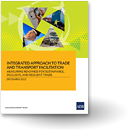Money and Finance
ASEAN Swap Arrangement (ASA)
Central Banks and Monetary Authorities of the original five Association of Southeast Asian Nations (ASEAN) - Indonesia, Malaysia, Philippines, Singapore, and Thailand - agreed to establish reciprocal currency or swap arrangements in August 1977. The ASEAN Swap Arrangement (ASA) was created primarily to provide liquidity support for those experiencing balance of payments difficulties.
The duration, coverage, and amount of the ASA have expanded markedly since its inception. Originally intended to be in effect for just one year, the arrangement has been extended incrementally. The Chiang Mai Initiative (CMI), announced at the ASEAN+3 Finance Ministers’ Meeting in May 2000, expands ASA to all current ASEAN members. In November 2000, the total amount available for swap transactions under ASA was increased from US$200 million to US$1 billion. In May 2005, during the 8th ASEAN+3 Finance Ministers’ Meeting, the total amount for the ASEAN Swap Arrangement was further doubled to US$2 billion.
Current ASEAN members include Brunei Darussalam, Cambodia, Indonesia, the Lao People’s Democratic Republic, Malaysia, Myanmar, the Philippines, Singapore, Thailand, and Viet Nam.
Agreements
- The Second Supplemental Memorandum of Understanding on the ASEAN Swap ArrangementAssociation of Southeast Asian Nations (ASEAN) Secretariat17 Nov 2009
- 2005 Memorandum of Understanding on the ASEAN Swap ArrangementNational University of Singapore17 Nov 2005
- Fifth Supplementary Agreement to the Memorandum of Understanding on ASEAN Swap ArrangementAssociation of Southeast Asian Nations (ASEAN) Secretariat19 Sep 1992
- Fourth Supplementary Agreement to the Memorandum of Understanding on ASEAN Swap ArrangementAssociation of Southeast Asian Nations (ASEAN) Secretariat21 Jan 1987
- Third Supplementary Agreement to the Memorandum of Understanding on the ASEAN Swap ArrangementAssociation of Southeast Asian Nations (ASEAN) Secretariat4 Feb 1982
News
- [People's Republic of] China, Singapore extend currency swap dealXinhua News Agency13 May 2019
- ASEAN renews $2-B forex support fundphilstar.com21 Oct 2017
- Malaysia: BNM renews commitment to Asean Swap Arrangement for another two yearsNew Straits Times13 Oct 2017
- Japan Finance Minister Aso says yen is a stable currencyReuters5 May 2017
Opinions and Editorials
- Singapore is seeking to be the Asian bullion hub with tax free gold and silverBusiness Insider14 Mar 2012
Studies and Research
- Globalisation, Pass-through and the Optimal Policy Response to Exchange RatesM. B. Devereux and J. YetmanBank for International Settlements1 Jun 2014




